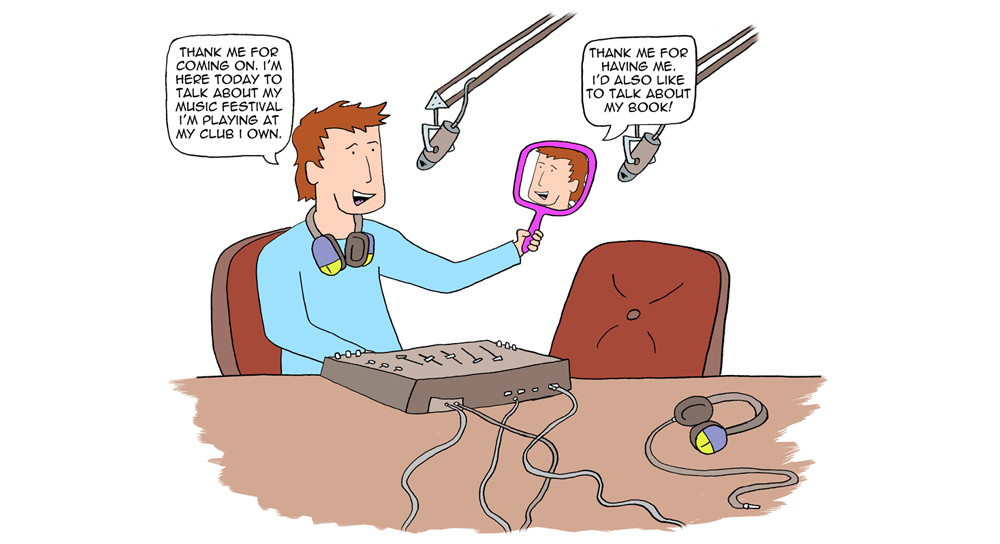Unpopular Opinions
You hear two big things about the Winnipeg music scene: That it is a warm, welcoming place where artists are nurtured and able to grow, with shows every night of the week at world class venues. You also hear that it is incredibly cliquey and that people who are friends with certain people have an unfair advantage.
Both of these statements are accurate.
I’d like to speak to you today about conflicts of interest. I’d also like to do so without naming any names, which is tricky. I can only assume that those “in the know” will know, and that those who would “like to know” can ask around. Maybe I’ll begin with a few
abstract questions.
Question 1) Should a music festival that opens itself up to applications also curate the festival?
Question 2) Should organizers of a music festival also play this festival, or should it be run by impartial non-musicians who aim to put the spotlight on new and exciting artists?
Question 3) Should bookers at venues book their own bands/bands they work with (through management or label connections) as openers for well known touring acts?
Question 4) Should journalists work as publicists and use one avenue to advance the success of a client?
Musicians have been curating festivals forever - it wouldn’t be Lollapalooza without some sort of Perry Farrell act playing - but there has to be a question of ethics when organizers of events so blatantly book bands that a quick Google search will show they have associations with. You can keep the application page on your festival website as vague as you like, but it’s only fair to state if a percentage of the festival will be curated (especially if you are tweeting at bands inviting them to play). In contrast, the rules to our recent Uniter Fiver contest clearly state that no current paid employees of The Uniter can enter, nor can anyone who is in a band with a current paid employee.
Such conflicts of interest have occurred in the mainstream media quite a bit this last year. Jian Ghomeshi booked guests on CBC’s Q that shared his lawyer and agent without disclosing this fact to listeners. One might argue that he can book whomever he wants for his show, and this is true. Ethically it becomes questionable because Ghomeshi shared a lawyer and agent (Chris Taylor and Jack Ross) with many of the show’s guests, including Lindi Ortega, who appeared twice on Q in a year. Ghomeshi was, up until his recent court case, also the manager of pop singer/songwriter Lights, who appeared as a guest on Q. Exposure of any kind where money is involved is a clear conflict and should have been disclosed. Ghomeshi’s former co-worker Rich Terfry, host of Radio 2 Drive, has never played any Buck 65 songs on the air. When he goes on tour, he doesn’t mention it. This is called separating your two worlds.
Just last week Toronto Global TV anchor Leslie Roberts made national news when he was suspended from work over possible conflict of interest, an ownership role in BuzzPR, which refers to itself as “Toronto’s top public relations agency.” One argument made between the Roberts and Ghomeshi situations is that Q is simply an “entertainment program” and shouldn’t be held to the same standards as hard news. Reporting on something is reporting on something, regardless of subject matter.
This preferential treatment can no doubt provide exposure to an artist that wouldn’t otherwise receive it. What about when money is not changed hands? Everyone is friends with everyone and you can’t avoid conflict of interest, not in a city like Winnipeg. The criteria that I give to young writers who come in asking to cover their friend’s bands (which happens once a week) is an old chestnut passed down from local journalist Bartley Kives - “If you’ve ever sat down for a meal with them, you probably shouldn’t be writing about them.” This probably means that if you play in a band with someone, you shouldn’t review a record by their other band. If you work as a publicist for an artist, you probably shouldn’t write a story about them. If you work/volunteer for an organization, you shouldn’t write a positive comments piece about it. Let other people do the talking for you, otherwise it’s a press release.
I’ve worked very hard since my first day as arts & culture editor at The Uniter to keep things on the level here. I informed bands that I was friends with that they would receive no preferential treatment, or any sort of coverage whatsoever from me as a writer, and that continued when I became managing editor (I even stepped down from my position as chairperson of a local record label collective when I took the gig). Nothing that I work on creatively will be covered in the paper, but there are plenty of other publications to approach for exposure. All new contributors go through a volunteer orientation with the paper, and the subject of conflict of interest is outlined by our volunteer coordinator.
There are a lot of grey areas here, but consider this: if it makes you wonder if you’re doing something wrong, you probably are. You wouldn’t want to read a record review written by the band, would you?
Nicholas Friesen does things outside of this publication that you will never read about in this publication.
Published in Volume 69, Number 16 of The Uniter (January 14, 2015)







